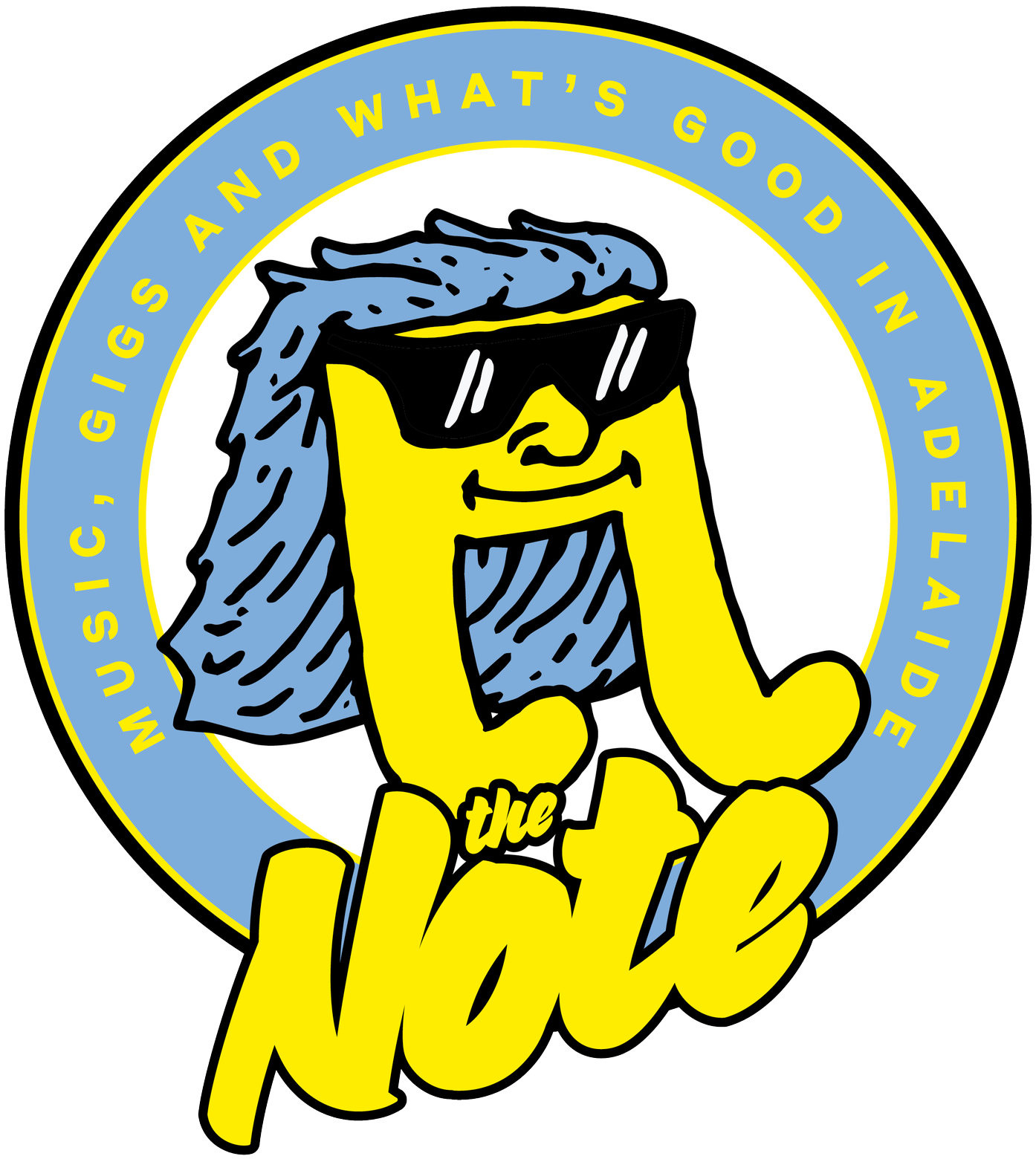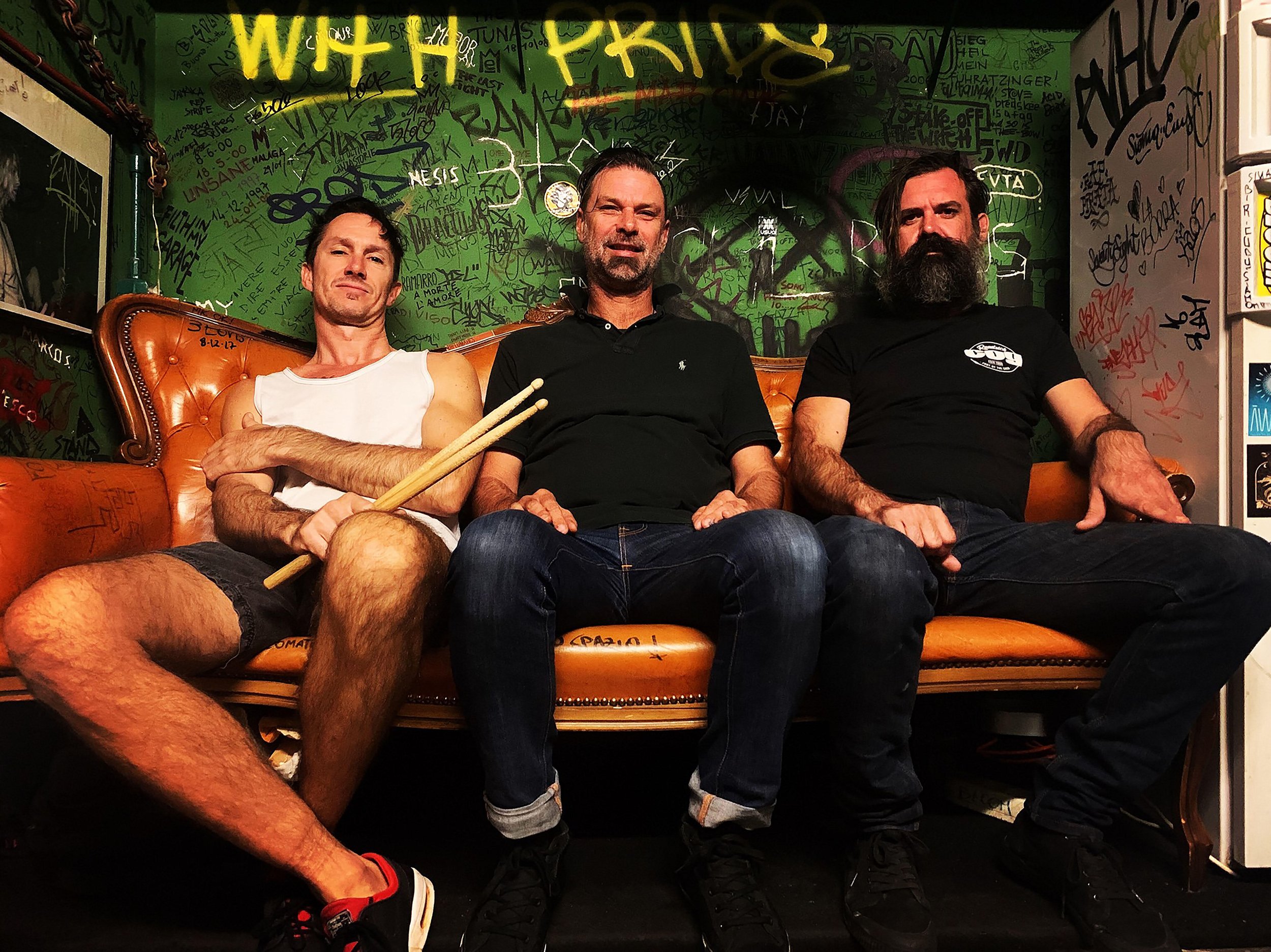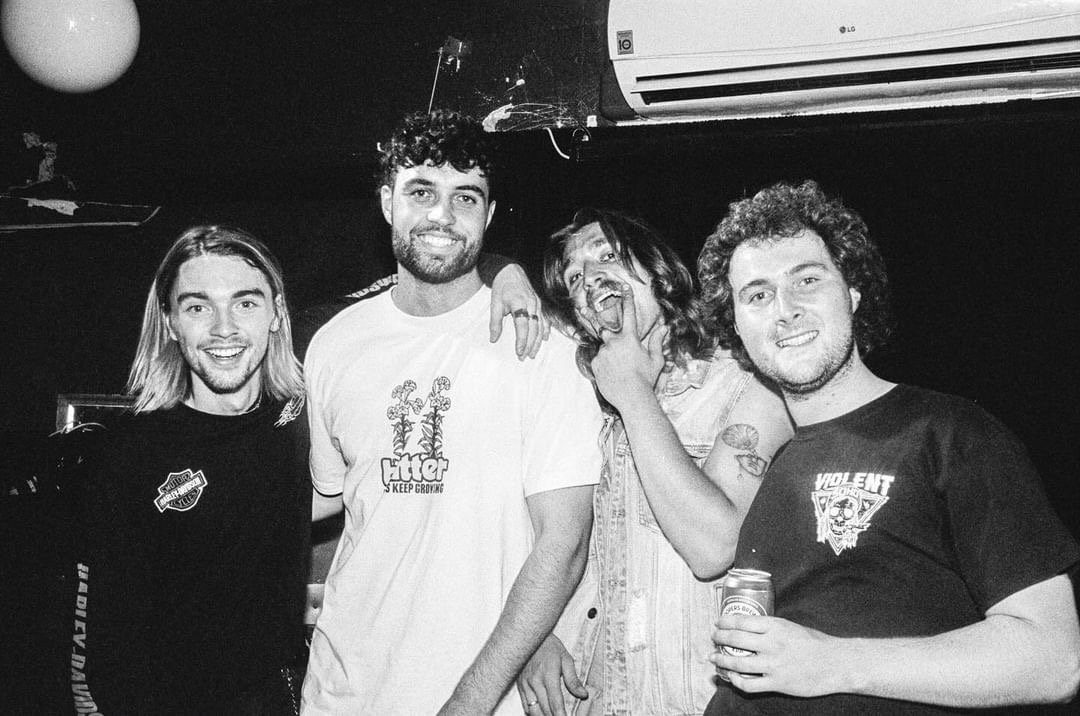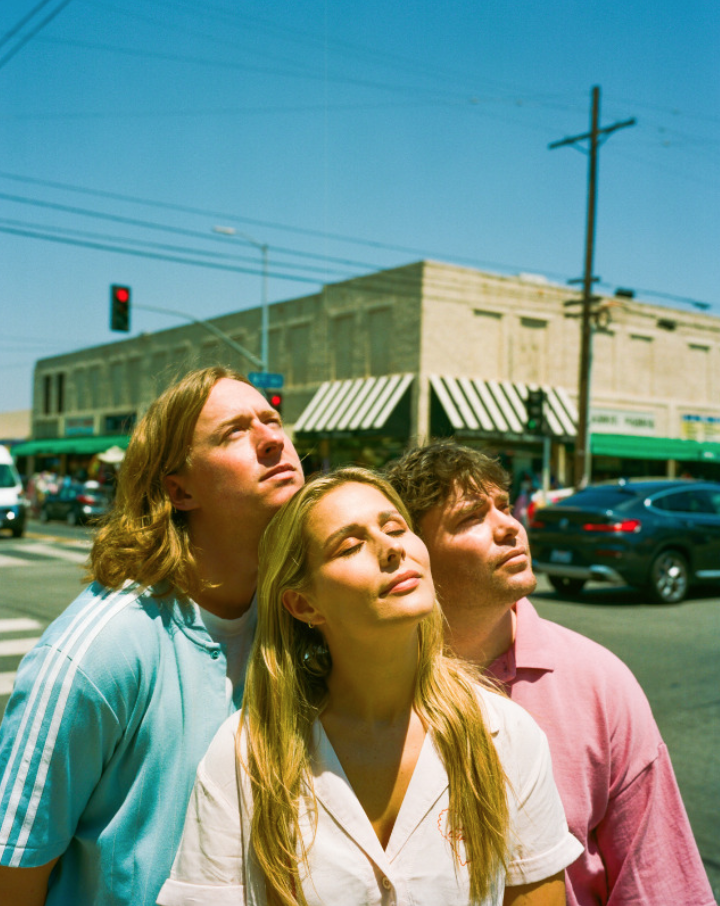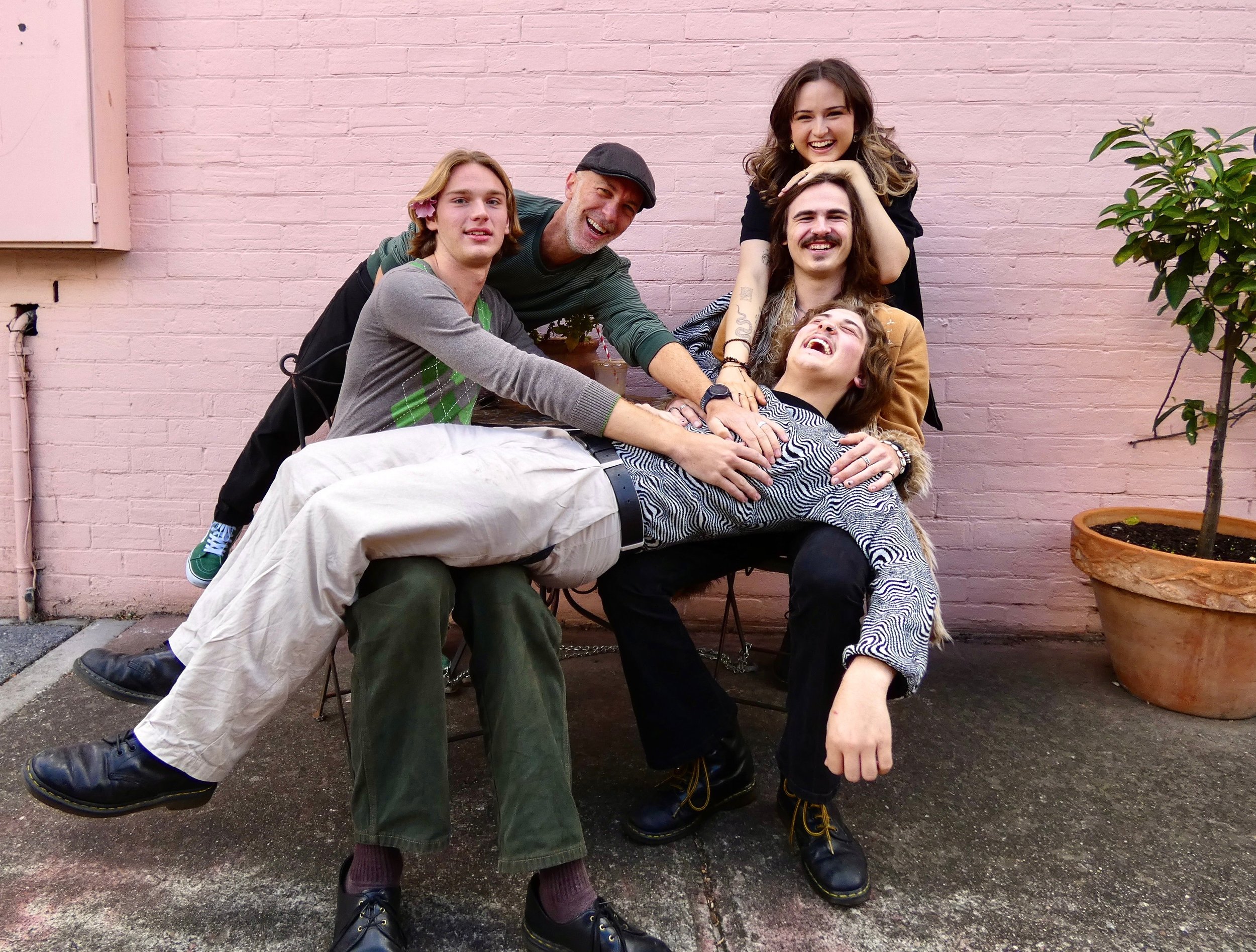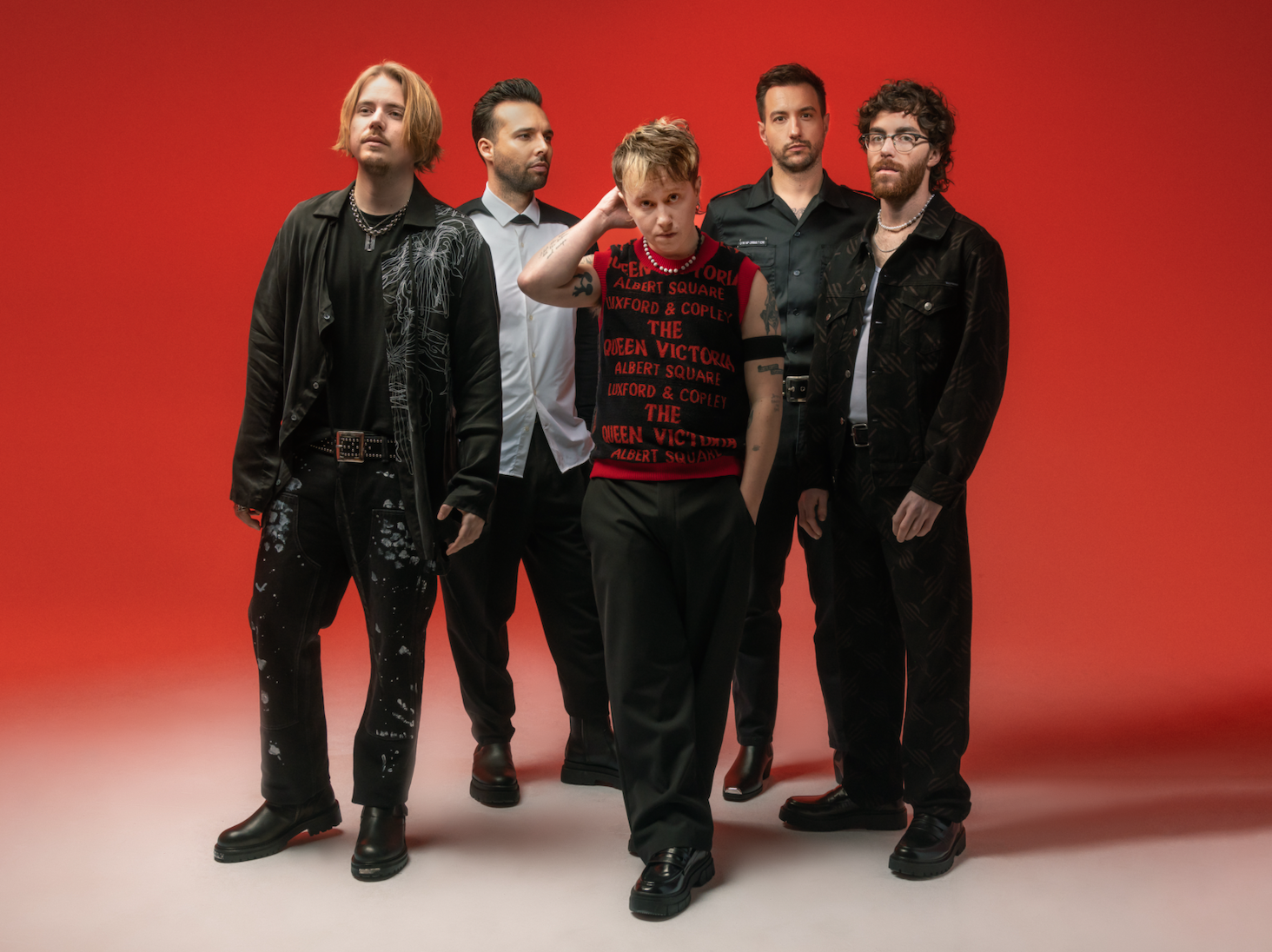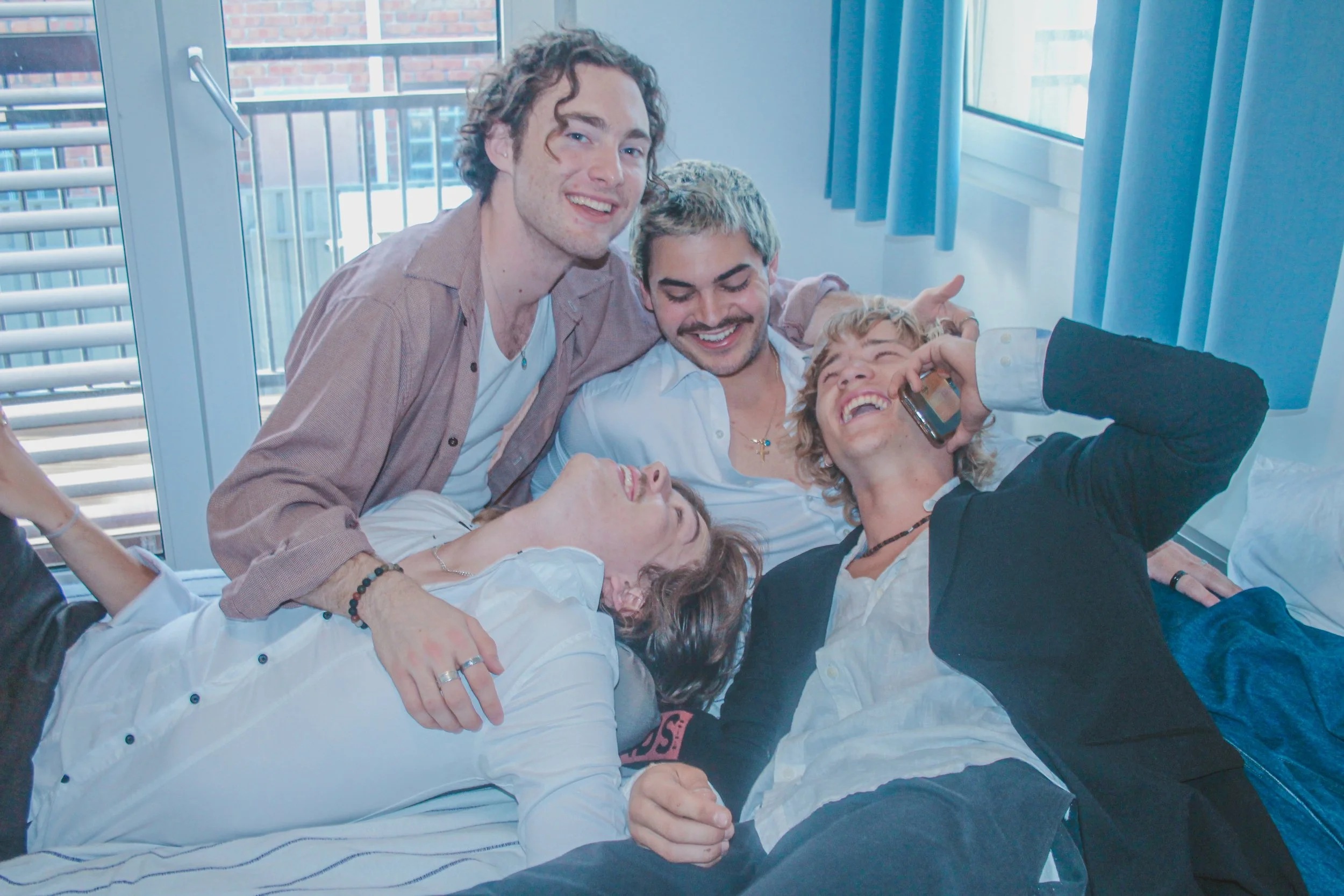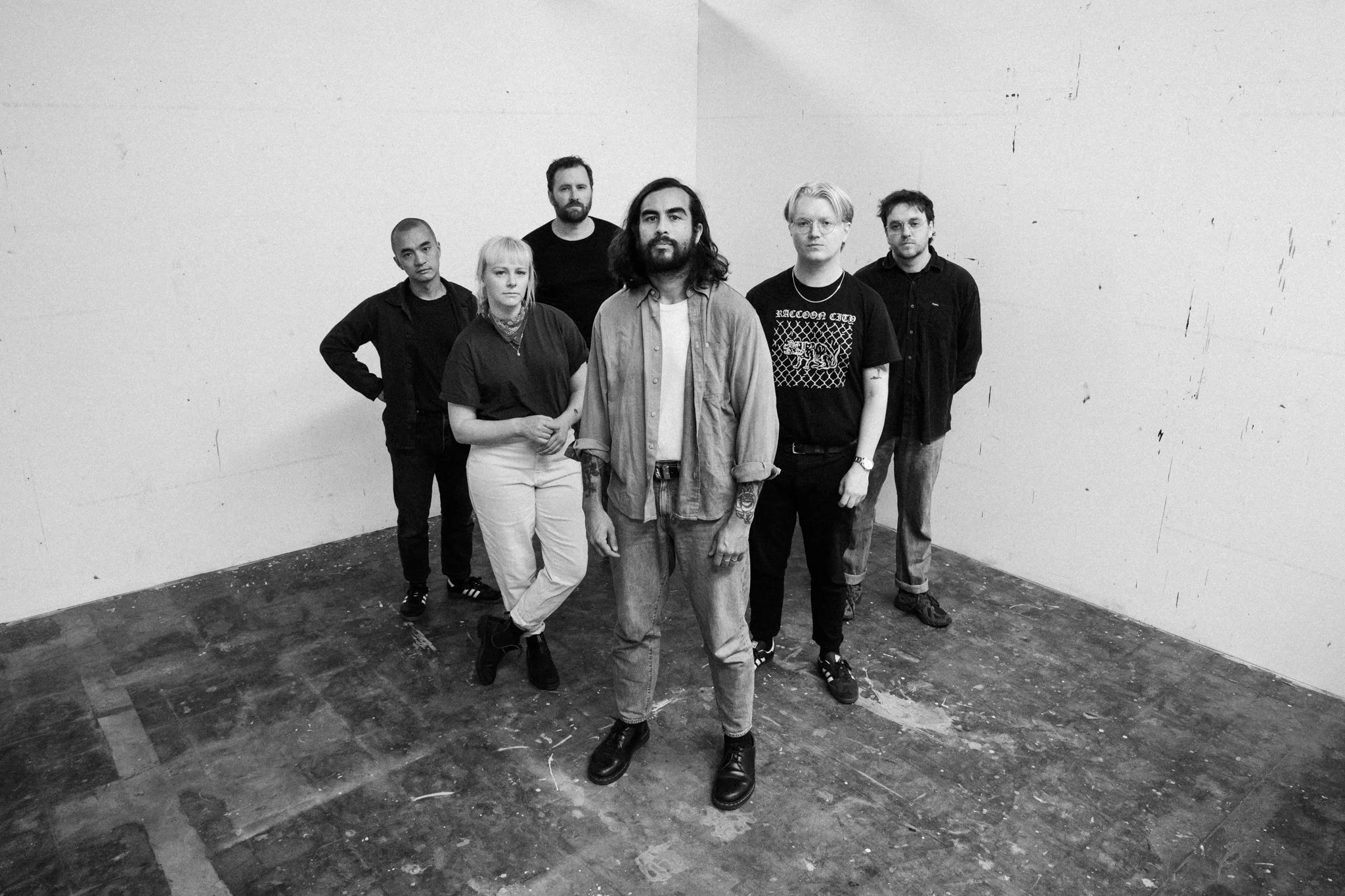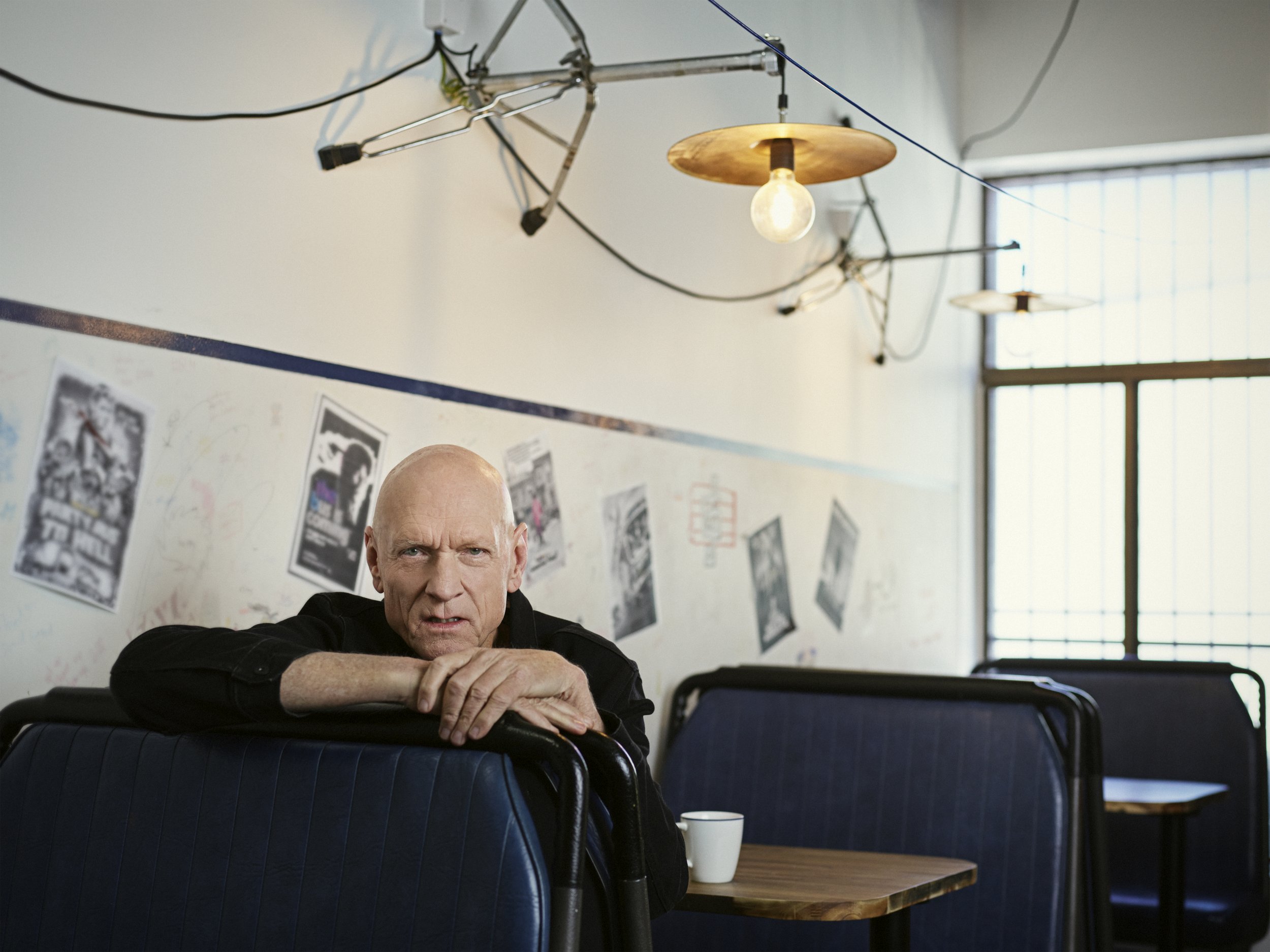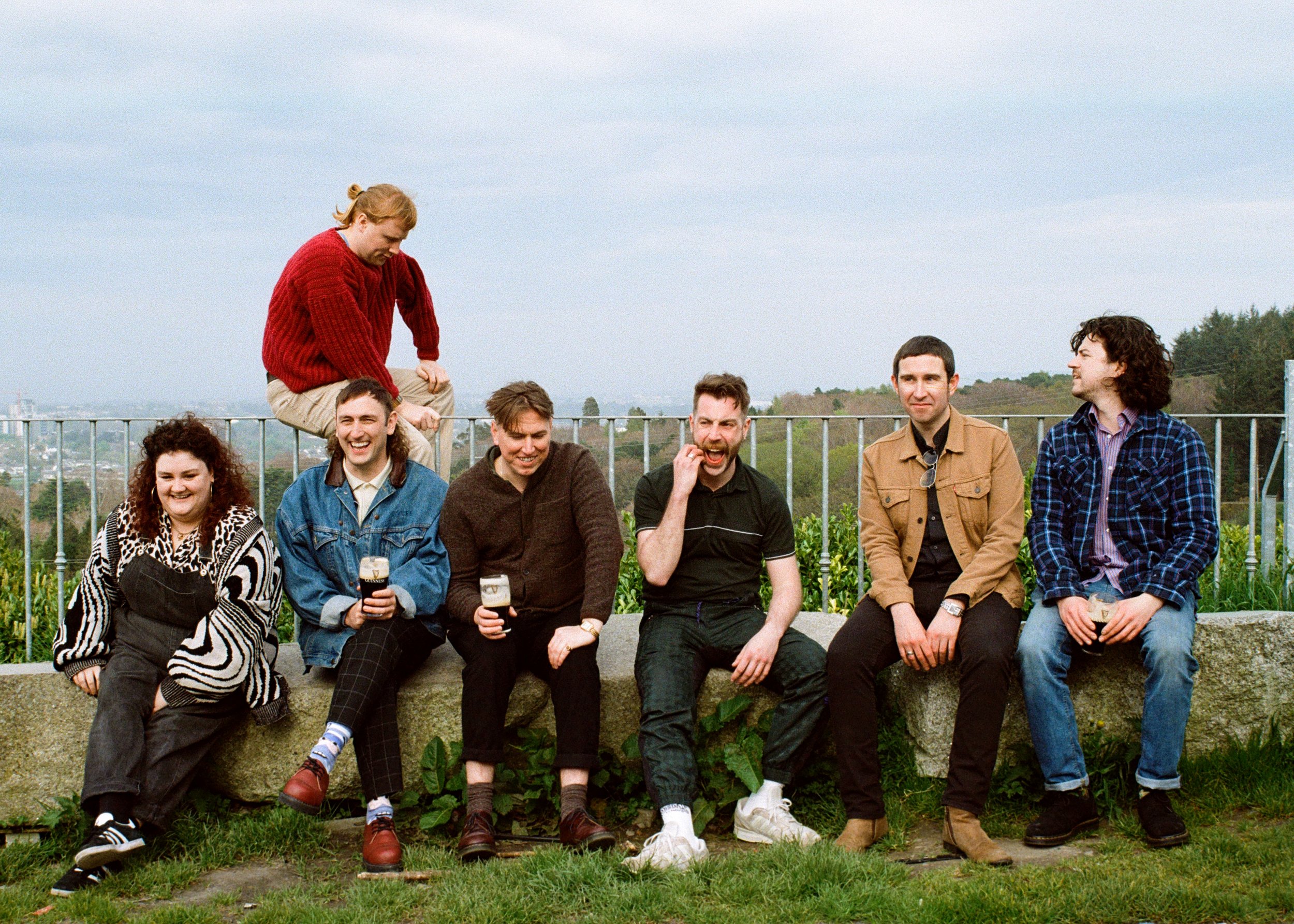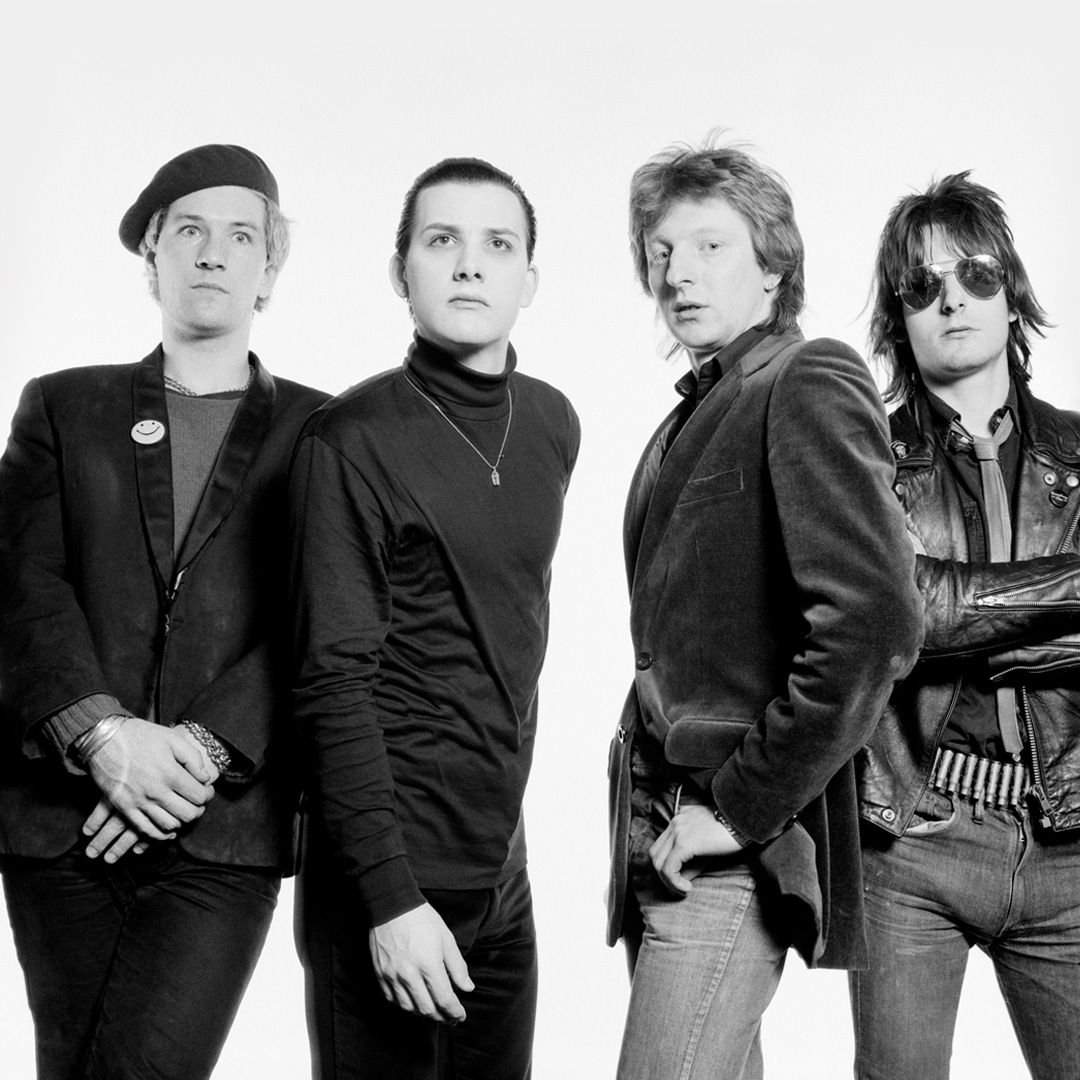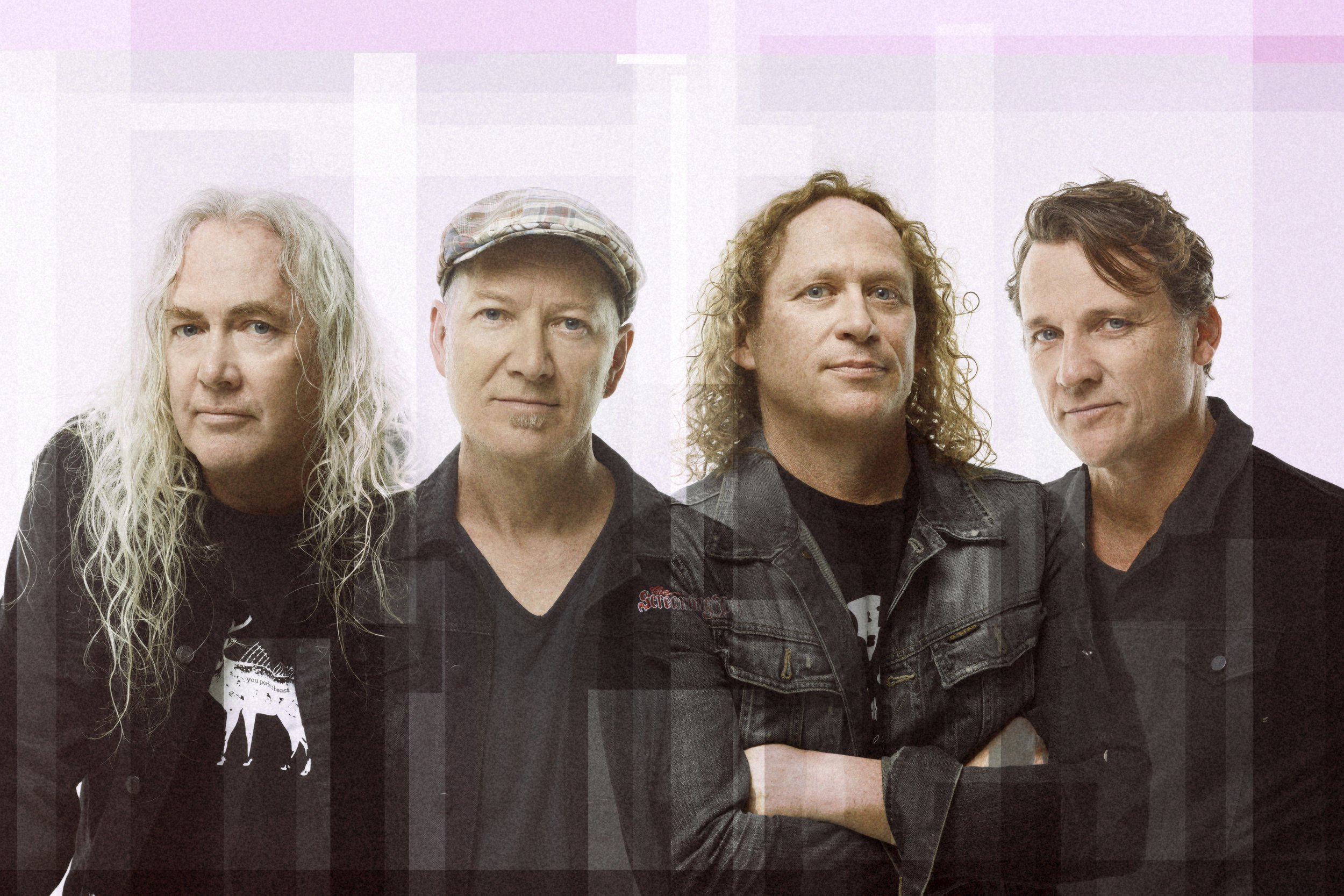COG’S IN MOTION
In celebration of regaining the rights to their first two albums, progressive rock stalwarts Cog have released vinyl editions of their seminal LPs, The New Normal, Sharing Space and Just Visiting. Ahead of their upcoming tour, Lucius Borich from the Byron Bay band takes us through the making of these mid-noughties masterpieces — and what it means for the outfit to perform 25 years into their career.
Congrats on the vinyl release of The New Normal, Sharing Space and Just Visiting. Why did you want to rerelease these specific albums?
The New Normal and Sharing Space were under lock and key with a record company we had a contract with for 15 years. The label was at the end of [its life], so it was pretty dysfunctional, and we couldn’t do anything with the albums. In January last year, we got all our rights back, meaning we could do what we wanted with our music. We’ve always wanted to do vinyl with those two albums. And, you know, we grew up with vinyl, so it’s a bit sentimental. I think for a musician, if they can put their music onto vinyl, it’s almost like a holy grail – it’s not just floating in the ether, it’s tangible.What kind of different quality do you think vinyl brings to your music?
There’s a relationship with the listener because it requires you to participate – it’s more than just grabbing your app and turning it on. I remember when I was younger, I used to save up my money, drive into the city and walk around all the vinyl shops. You’d spend three or four hours trying to find something good or something you heard about – it was a real adventure. And once you got the music, [you had] a real respect for it. We’re hoping people will get a similar type of vibe.Your debut album, The New Normal, cemented Cog as prog-rock masters. How did the LP come to life?
We had some good help. We were with an independent record label, which was great, and we had creative control. Before that, off our own back and merit, we’d done a lot of touring and playing. We sacrificed a lot to drive to Adelaide, Melbourne, Brisbane and everywhere in between, and build a fan base brick by brick. The music resonated for some reason. We were coming out of the grunge rock era and our music had a little more depth to it in a different way, it was a bit more experimental. [After] we got the demos done for The New Normal, we went to America and recorded there. We had Sylvia Massy [Tool, System of a Down] and she really loved the album. We went for six weeks, smashed it out, mixed it and were done. And we just kept playing good shows. I think that was part of it, too – relying on us as players and musicians to deliver good music in a live environment, which would spark people to tell their friends. Nothing was major labels; nothing was major radio stations. We played festivals like Big Day Out. But there was a big underground kind of cult following that grew through word of mouth. People showed up for the right reasons. It wasn’t about the latest fad, it was a real relationship with individuals. Which I think, to this day, is why we’ve still got a career and still play shows.Your sophomore album, Sharing Space, went gold. You said it differed from the first. Why do you think this one connected so well with listeners?
Sharing Space was straight to the point. It was post 9/11 and the world was changing in many ways. Decisions were being made and there was fear. There was also an elite consortium of people who... wanted to control the narrative and create a place where you almost had to comply or else. We put [these] lyrical ideas into the music, researching and studying social politics of what was going on, who ran what and why.Sonically, the album was different, too. It wasn’t as polished as The New Normal – it had this ‘home-cooked meal’ feel to it. We produced that one ourselves back at the same spot [in the US]. But it didn’t take six weeks like [the first album]. It took eight months and we lived over there in the studio. That’s probably something we’ll never get again. To sit in a room five days a week and really immerse yourself in the creative process was phenomenal.You’ve played some epic shows in your career. Are there any gigs between The New Normal and Sharing Space that stand out in the Cog journey?
When the buzz was potent, we played some of those big touring festivals. That was special. It’s like being in a circus on a roadshow. You weren’t worried if people were going to show up or not – you knew there were going to be 70,000 people there. Our shows have always been simple. We’ve never really wanted to masquerade it with footage or incredible lights. We’ve always wanted to just rely on the music. I think that level of playing, on those kinds of stages, was a huge leap and made us better musicians. You’re really in the hot seat when you’re in that position.You’re playing Hindley Street Music Hall on March 2 for a tour celebrating these vinyl releases. How do you think this gig will compare to those during the 2005 to 2008 period?
We have had so many good memories playing in Adelaide over the years, it’s been a real stronghold for us in terms of representing the underground prog-rock scene in Australia. [Touring] is like getting on a ship and going to a new island to some degree because we’re not touring constantly like we used to – which is good because you get excited to play. To know that there are still gigs out there and that we can play a show and people are going to show up – we’re so grateful.Do you think you’ve developed a new appreciation for music and touring?
Yeah. I’m blown away that people still want to come and see us. There’s always trepidation because we’ve been going a long time. But then I think back to the songs that I know I love, and I go, ‘Well If I went and saw Pink Floyd, I’d love to see them play some of the Dark Side of the Moon or Wish You Were Here.’ And how long ago was that? Good music is good music. It stands the test of time.This vinyl tour marks a new chapter for the band now that you own your music. What should we expect from Cog next?
Ha, that’s a brilliant question. We can create music whenever we want – we’ve got the tools now. The thing [separating] us from immersing ourselves in music is time. And it’s not because we don’t want to find the time, either. When you’ve got families and businesses and other things to run, it’s really challenging. I don’t know what’s next. That’s the exciting part. The question remains: What if? Time will tell.Catch Cog at Hindley Street Music Hall on March 2. Tickets on sale now.
